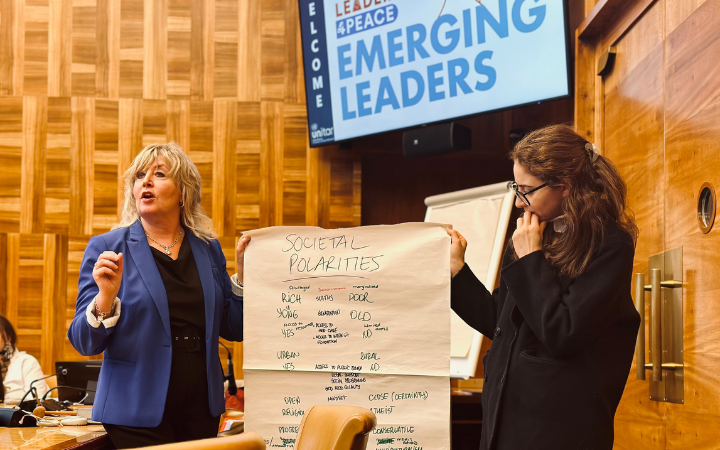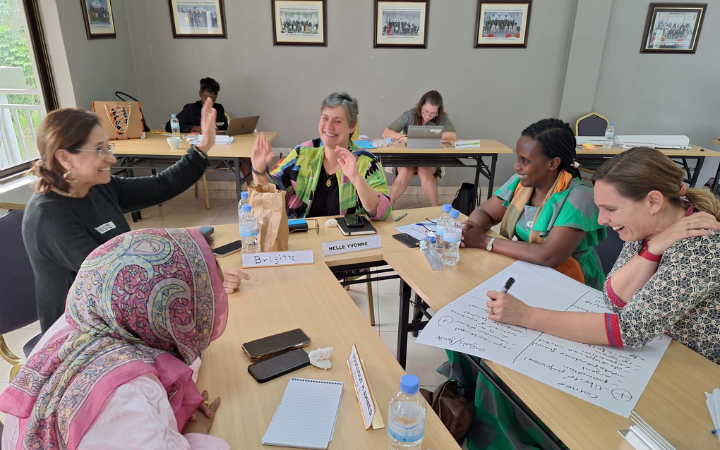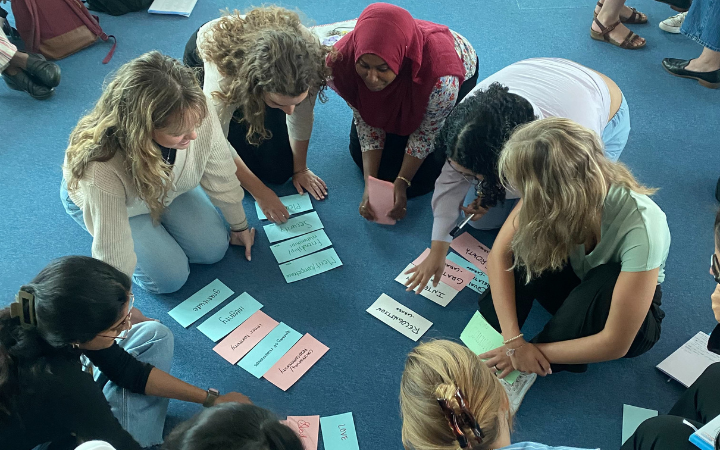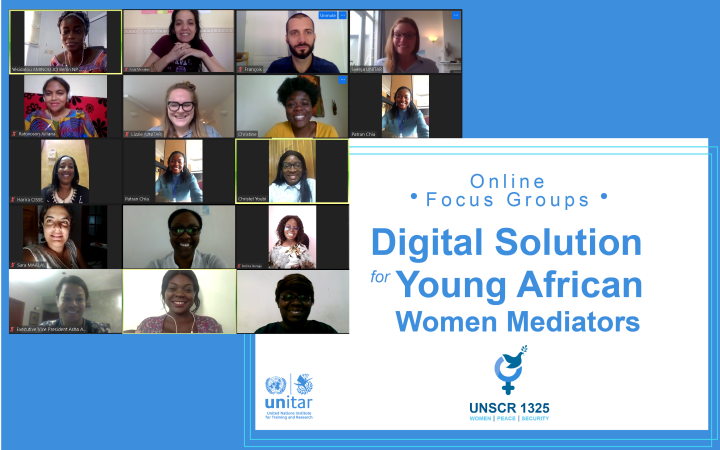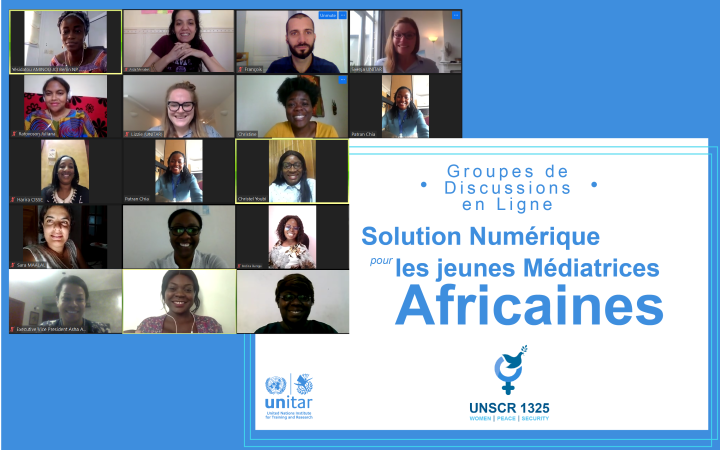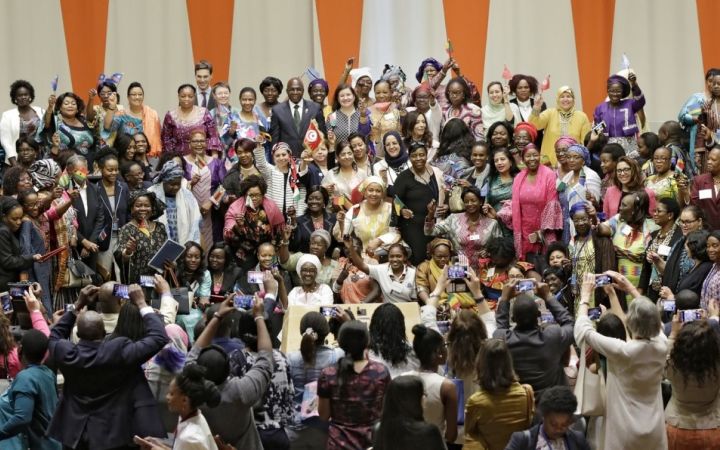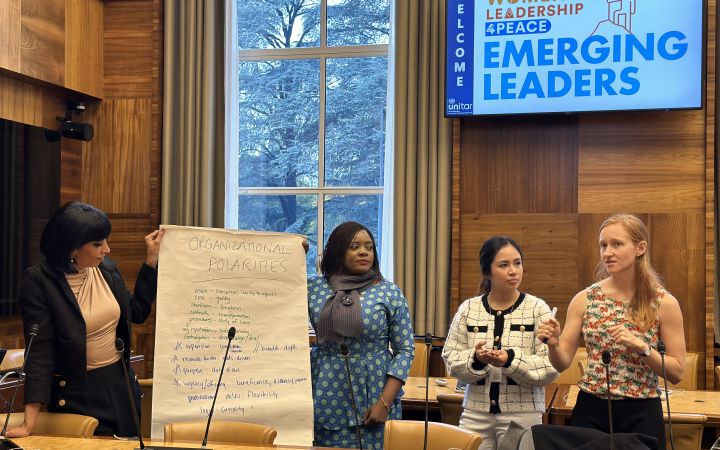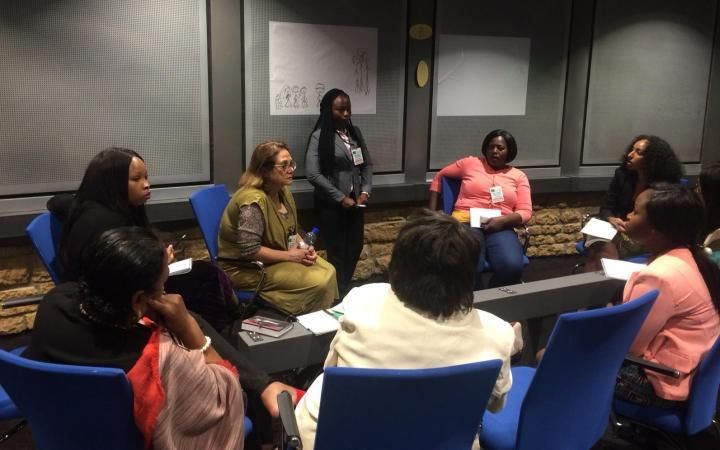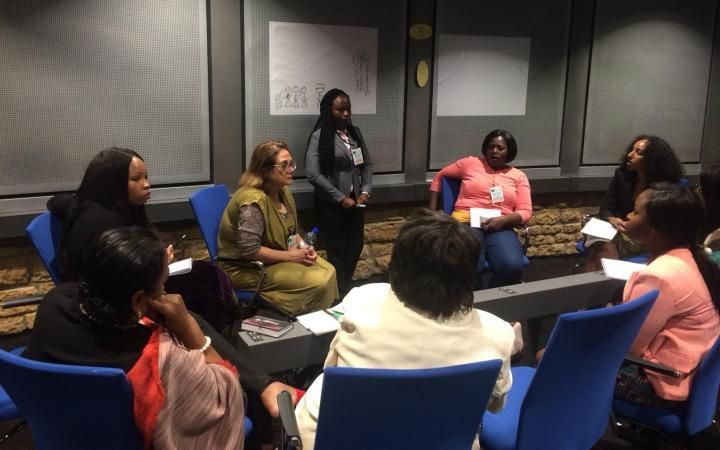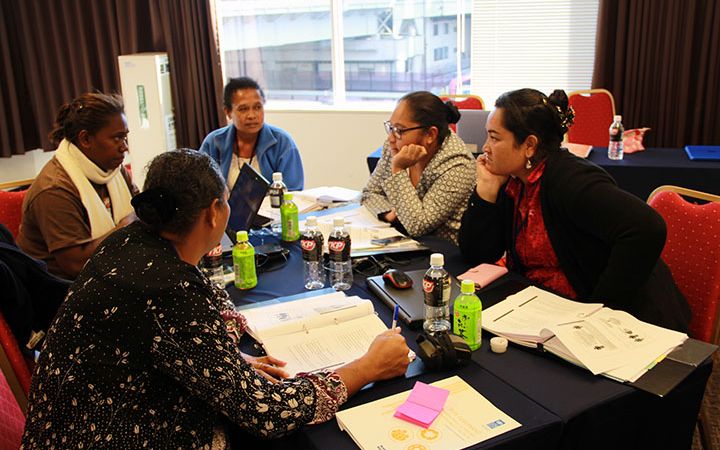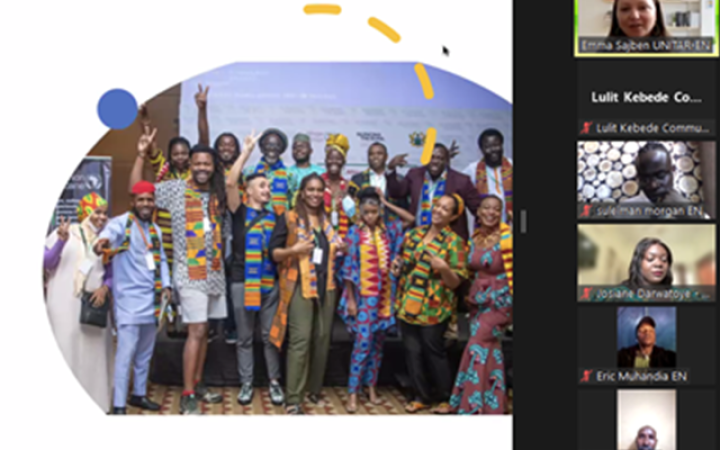“Wherever there is conflict, women must be part of the solution.” Michelle Bachelet, Former Head of UN-Women
What is peace without equal rights and opportunities for everyone? What is peace if peace processes themselves further endanger the lives of those at the margins? What is peace without a global community that cooperates to achieve a greater goal?
Peace is truly peace when the most vulnerable groups are protected when marginalised communities have greater representation and participation, and when economic and social development are sustained locally. Through capacity-building and learning, we can achieve sustainable peace together by empowering women and girls to realise the change they want to see.
Women’s empowerment is a cross-cutting priority at UNITAR, as we recognise the synergies between three of the SDGs: 5 (Gender equality), 16 (Peace, justice and strong institutions), and 17 (Partnerships for the goals). The Division for Peace within UNITAR has developed different programmes and initiatives aimed at empowering women around the world to meaningfully take part in peace processes, at all levels and in all capacities. When gaps in capacity, knowledge, or skills that affect women's empowerment are identified, UNITAR provides tailored and customised capacity-building and development packages to address the specific needs of stakeholders and foster a broader societal change.
Over the years, UNITAR has gained great expertise in supporting governments and civil society organisations in their work for women and girls’ empowerment – making it uniquely positioned to build and develop related capacities and capabilities at the individual, collective, and institutional levels
OUR MISSION
We contribute to a more peaceful, inclusive, and just world by closing the capacity gap standing in the way of the full realization of the Women Peace and Security (WPS) agenda.
OUR OBJECTIVES
-
Address the severe underrepresentation of women in peace and security spaces.
-
Ensure women leaders for peace have the skills, knowledge, confidence, and support to excel.
-
Support Member States in the full realisation of the Women, Peace and Security Agenda.
-
Assist international, national, and local organisations and governments to integrate gender inclusivity into their peacebuilding efforts and ensure there are no barriers for women to make meaningful contributions to sustainable peace.
-
Work towards greater inclusivity and equality.
THEMATIC AREAS
-
Women, Peace and Security Agenda.
UNITAR is strongly committed to advancing the Women, Peace, and Security (WPS) agenda, which recognises the critical role of women in conflict prevention, resolution, and peacebuilding. Through targeted capacity-building programmes, advocacy efforts, and policy support, we strive to ensure the effective implementation of UN Security Council Resolution 1325 and subsequent resolutions, promoting women's meaningful participation in peace processes and decision-making at all levels.
-
Prevention of sexual and gender-based violence:
UNITAR places a strong emphasis on preventing and addressing sexual and gender-based violence (SGBV) in conflict and post-conflict settings. Our training initiatives focus on raising awareness, building capacity, and developing strategies to prevent SGBV, support survivors, and hold perpetrators accountable. By enhancing the capacities of the relevant actors, working on preventing SGBV, we aim to contribute to the creation of safer and more inclusive societies.
-
Equal participation in decision-making processes
We recognise the importance of ensuring women's equal participation in decision-making processes related to peace and security. UNITAR works to empower women leaders providing them with the skills, knowledge, and opportunities needed to engage effectively in policy formulation, conflict resolution, and peacebuilding efforts.
-
Gender equality and integration in peace support operations:
UNITAR advocates for the integration of gender perspectives and the promotion of gender equality within peace support operations. Through training programmes tailored for military, police, and civilian personnel, we seek to mainstream gender considerations into peacekeeping missions, enhance the protection of women and girls, and address the specific needs of diverse communities affected by conflict.
-
Women's Leadership for Peace:
We recognise the transformative potential of women's leadership in advancing peace and security worldwide. Therefore, UNITAR supports initiatives that empower women leaders from diverse backgrounds to play active roles in peacebuilding processes. By highlighting and amplifying women's voices and experiences, we aim to challenge traditional power dynamics and promote more inclusive and effective approaches to peacebuilding.
-
Women-led mediation and negotiation:
UNITAR promotes the meaningful participation of women in mediation and negotiation processes aimed at resolving conflicts and building sustainable peace. We provide training and capacity-building support to women mediators, negotiators, and peacebuilders, equipping them with the skills, knowledge, and confidence needed to navigate complex peace processes, build consensus, and broker agreements that address the root causes of conflict and promote reconciliation.
-
Women's entrepreneurship and grassroots initiatives:
Recognising the vital role of economic empowerment in advancing peace and stability, UNITAR supports women's entrepreneurship and grassroots initiatives that contribute to community resilience, sustainable development, and lasting peace. Through skills training, access to resources, and networking opportunities, our work empowers women to become agents of change, driving innovation, job creation, and inclusive growth in conflict-affected and post-conflict contexts.
-
Effective monitoring and reporting on the WPS Agenda:
UNITAR works to strengthen monitoring and reporting mechanisms related to the implementation of the Women, Peace, and Security agenda. We provide training and technical assistance to various actors, including regional and national bodies, civil society organizations, and UN agencies to enhance their capacity to collect, analyse, and disseminate gender-sensitive data, monitor progress on WPS indicators, and hold stakeholders accountable for their commitments to gender equality and women's rights.
Our Services
- Training and facilitation: UNITAR offers tailored training programmes and engaging facilitation services to empower individuals, organizations, and communities in advancing peace and security worldwide.
-
Coaching and mentoring: Our personalised coaching and mentoring support help our beneficiaries enhance their effectiveness and achieve their peace and security goals through guidance and practical advice.
-
Training of Trainers (ToT): UNITAR's ToT programmes build the capacity of professionals to deliver high-quality training on peacebuilding and conflict resolution, fostering a culture of continuous learning and sustainability.
-
Online courses and master's degrees: Accessible and flexible online learning opportunities provide engaging experiences and expert instruction for learners worldwide.
-
Learning support materials: Our manuals, guides, and multimedia resources complement training initiatives, reinforcing learning, and facilitating real-world application.
-
Advocacy: UNITAR advocates for policy reforms and institutional changes that advance the Women, Peace, and Security agenda and promote inclusive peacebuilding and conflict resolution approaches.
OUR BENEFICIARIES
As of today, UNITAR’s partners include international bodies, regional organisations, individual states, non-governmental organisations (NGOs), training institutions, research centres, women’s networks, grassroots organisations, and local groups. UNITAR has supported these partners with projects on women’s empowerment in various ways, including Face to Face Trainings, E-Learning & Online Facilitation, Training-of-Trainers Courses, Digital Solutions, and Advocacy.
OUR WORK
Contact Information
For more information related to our activities in the area of women’s empowerment, please contact the Youth and Women’s Empowerment team at ptp@unitar.org.


